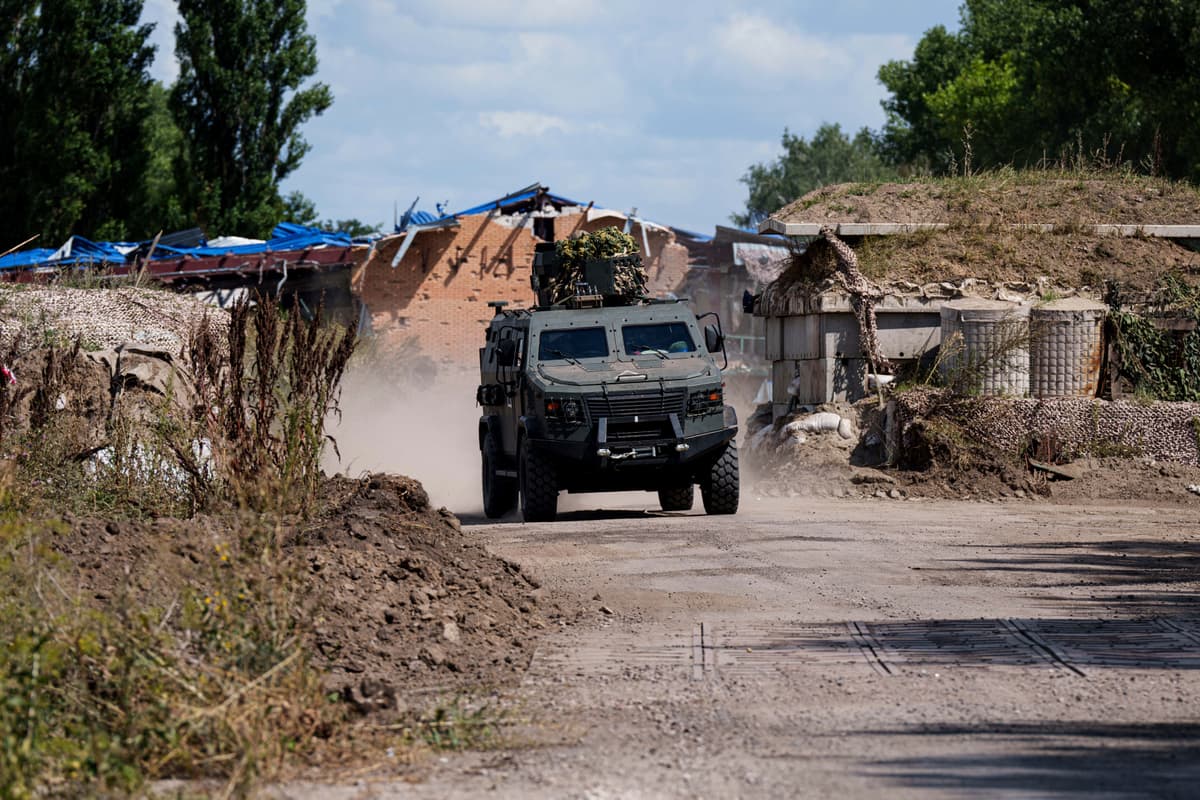Ukraine, Russia Appear Resolute as No One Is Blinking in Battle of Kursk
Russia is posting ads for trench diggers for anti-tank structures, as Zelensky discusses setting up military administrations.

Ukraine and Russia are digging in for the long haul in Kursk. Last week, Ukrainian soldiers invaded the Russian border region in a lightning move that shocked the world. Today, it is clear that Kursk will not be a tick-tock, in-and-out operation. Here are some clues:
- President Zelensky yesterday publicly discussed setting up military administrations for the roughly 400 square miles of Russian territory controlled by his troops. In a televised meeting he also talked about bringing in the United Nations and the International Committee of the Red Cross to deal with civilian needs.
- Satellite photos show that Russian troops are digging defensive trenches between 27 and 47 miles from the border. This would allow Ukraine to double the Russian land it already holds. Analyzing photos, the OSINTtechnical X account wrote: “Russian forces have been developing a trench network that, if fallen back to, would cede Ukraine a massive amount of territory.”
- BBC’s Russian service reported yesterday that a Russian job portal posted over 30 ads for trench diggers in Kursk. The majority of the ads called for workers to build “fortifications,” including trenches and anti-tank structures. To fill the trenches, the Kremlin plans to bring in draftees from last spring’s call up, reports Russian opposition Telegram channel, Mobilization News.
- Facing the draftees are some of Ukraine’s most experienced troops, from active battlegrounds in Ukraine’s southeast — Chasiv Yar, Pokrovsk, and Toretsk. These are “the most difficult parts of the front line,” veteran Ukraine war analyst Rob Lee posts on X. “It is pretty clear that Ukraine is not pursuing limited objectives in its Kursk operation.”
- Ukraine keeps advancing. Yesterday, it took six more villages and 100 Russian prisoners before noon, Mr. Zelensky posted on Telegram. Things were calm enough for a helmeted Ukrainian state TV reporter to visit Suzhda, a district capital. Her team filmed Ukrainian soldiers handing out humanitarian aid and tearing down Russian flags.
- From the Russian side, the acting governor of Kursk, Alexei Smirnov, warns: “I say it straight: the crisis has not yet been overcome.” Late last night, he announced the evacuation of 20,000 people from a new district, Glushkov.
- Next door, in Russia’s Belgorod region, a night of heavy shelling prompted Governor Gladkov yesterday to declare a state of emergency. With 16,000 residents displaced, he said that the situation is “extremely difficult and tense.” Today the federal emergency minister, Alexander Kurenkov, declared a federal level emergency in the region. He said: “As a result of terrorist attacks by Ukrainian armed groups in the Belgorod region, residential houses and infrastructure facilities have been damaged, there are dead and injured citizens,”
- President Putin on Monday publicly warned the governor of a third border region, Bryansk: “If things are relatively calm in the Bryansk region today, that does not mean the situation will stay that way tomorrow.”
- In the largest long range drone strike of the war, Ukrainian drones and missiles hit eight Russian regions Tuesday night, hitting four military airfields, including the main one in Kursk. Russia’s Defense Ministry said air defenses downed four missiles and 117 drones. However, the Telegram channel Fighterbomber, which is close to Russia’s Air Force, said the Ukrainian raids were “effective.” Over Kursk on Tuesday night, Ukrainian air defense shot down a Russian Su-34 fighter-bomber.
- “Buffer zone” is the phrase of the week in Kyiv. “In the ‘buffer zone’ food, medicine, and other items necessary for the civilian population should be provided,” Ukraine’s human rights commissioner Dmytro Lubinets said on Telegram. Interior Minister Ihor Klymenko said on Telegram: “The creation of a buffer zone in the Kursk region is a step that is designed to protect our border communities from daily enemy attacks.”
- The appointment of Mr. Putin’s former bodyguard, Aleksey Dyumin, comes after Mr. Putin, a former KGB colonel, feels again betrayed by faulty intelligence from Ukraine. Reportedly, Russia’s army chief, Valery Gerasimov, ignored intelligence warnings that Kyiv was preparing an armored assault on Kursk. The Institute for the Study of War writes, citing Russian military bloggers: “Several Kremlin-affiliated milbloggers claimed that Dyumin’s appointment was a sign that ‘Putin’s team’ was taking full control over the situation in Kursk Oblast after Russian security forces failed to resolve the situation without Moscow’s direct intervention over the past week.”
- Russian Railways has ordered Belarussian Railways to keep trains off the last 100 miles of the Moscow-Kursk main line this week. The reason: “A large-scale operational transfer of troops in the direction of Kursk.”

